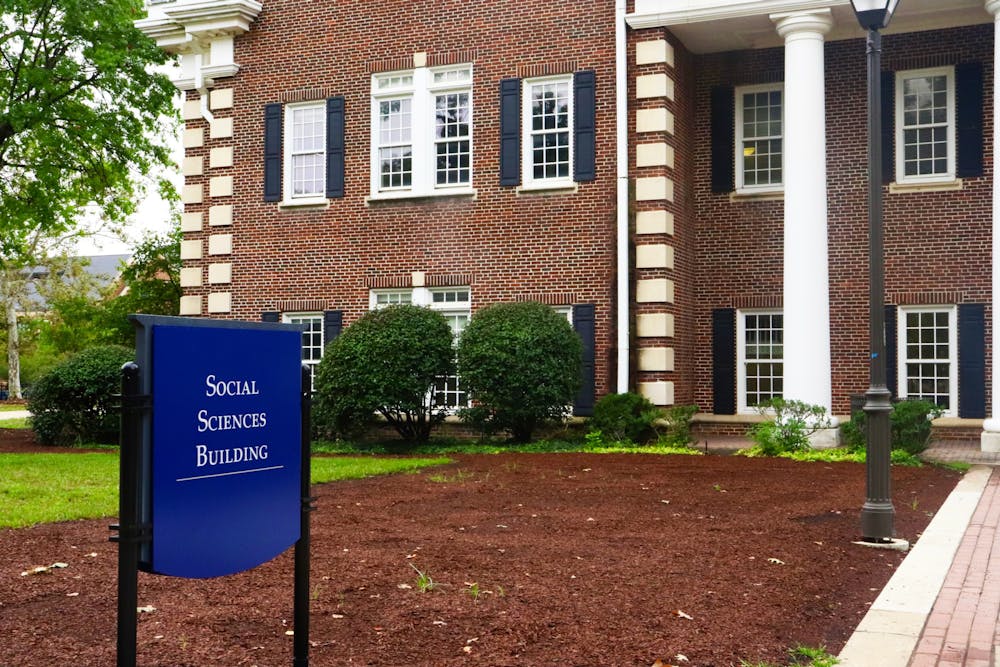By Kayla Del
Staff Writer
Many students experience anxiety and uncertainty during their first days of college, as they face the overwhelming task of navigating the unfamiliar. But for students within the College’s School of Humanities and Social Sciences (HSS), these fears do not have to be faced alone and can be conquered with the help of a peer.
The HSS Peer Mentoring Program was created at the College with the primary goal of allowing first-year students to easily connect with and receive guidance from more experienced peers.
Matched with a mentor at the beginning of the year through their required HSS 99 classes, new HSS students are given extra support to aid their transition to college life. Mentors typically have between 4-6 mentees, meeting during their weekly HSS 99 classes or more frequently if they choose to do so.
Junior political science major and vice president of the program Amelia Laubsch expressed that students are drawn to the program's fundamental principle: relatability. This one-of-a-kind relationship between mentor and mentee is built on shared experiences, which drives the success of peer mentoring.
"When you get a mentor, you are able to learn from someone who has already been in your shoes, and that level of understanding is unmatched," Laubsch said.
In essence, the program builds a feeling of community where students can feel at ease knowing that they are surrounded by classmates who understand the ups and downs of academic life.
“I think that the aim of the Peer Mentor Program is to allow the incoming students to know that they are not alone in how they are feeling,” said Gia DiNatale, a junior psychology major and HSS peer mentor. “There is likely someone in their peer group who is experiencing the same feelings that they are and who have the same questions as they do.”
Within HSS, the Peer Mentoring Program is fueled by an ongoing cycle of mentorship where the desire to help others is sparked by the positive influence of those who came before.
"When my sophomore year came around, I knew I wanted to make a difference in someone's life the same way my mentor made a difference in mine," said Laubsch.
This attitude embodies the core of the program: a cycle of giving back and uplifting others–a positive chain reaction of mentorship that extends beyond the classroom.
Reflecting on her journey as a mentor, DiNatale shared that while the goal of mentors is to guide their mentees to success, they are not incapable of making their own mistakes.
“Another lesson that I have been able to take away from this experience has been that mentoring is not a linear path of perfection,” DiNatale said. “As a mentor, you're bound to make mistakes or not know how to navigate certain things along the way.”
DiNatale's words emphasize that the most crucial aspect of mentoring is not the absence of errors but the willingness to learn from them. Highlighting the importance of humility as a mentor, DiNatale's advice serves as a reminder that the goal is not perfection: it is growth.
The program develops empathy, patience and adaptability in mentors, helping them to become better versions of themselves while guiding others. Learning these critical tools, mentors gain a skill set that will prepare them for success in both their personal and professional lives long after graduation.
The HSS Peer Mentor Program provides more than purely academic support. It is centered on making relationships and cultivating a sense of belonging within the College. In this environment, peers turn into family, bound together by shared personal and academic growth.
Laubsch expresses her wish for the program to be a prime example of what college should be: a place where students not only learn but also develop networks of support.
"I hope the program boosts retention among the School of Humanities and Social Sciences and the College as a whole, showing that we created a family-like environment where students truly feel at home," Laubsch said.







